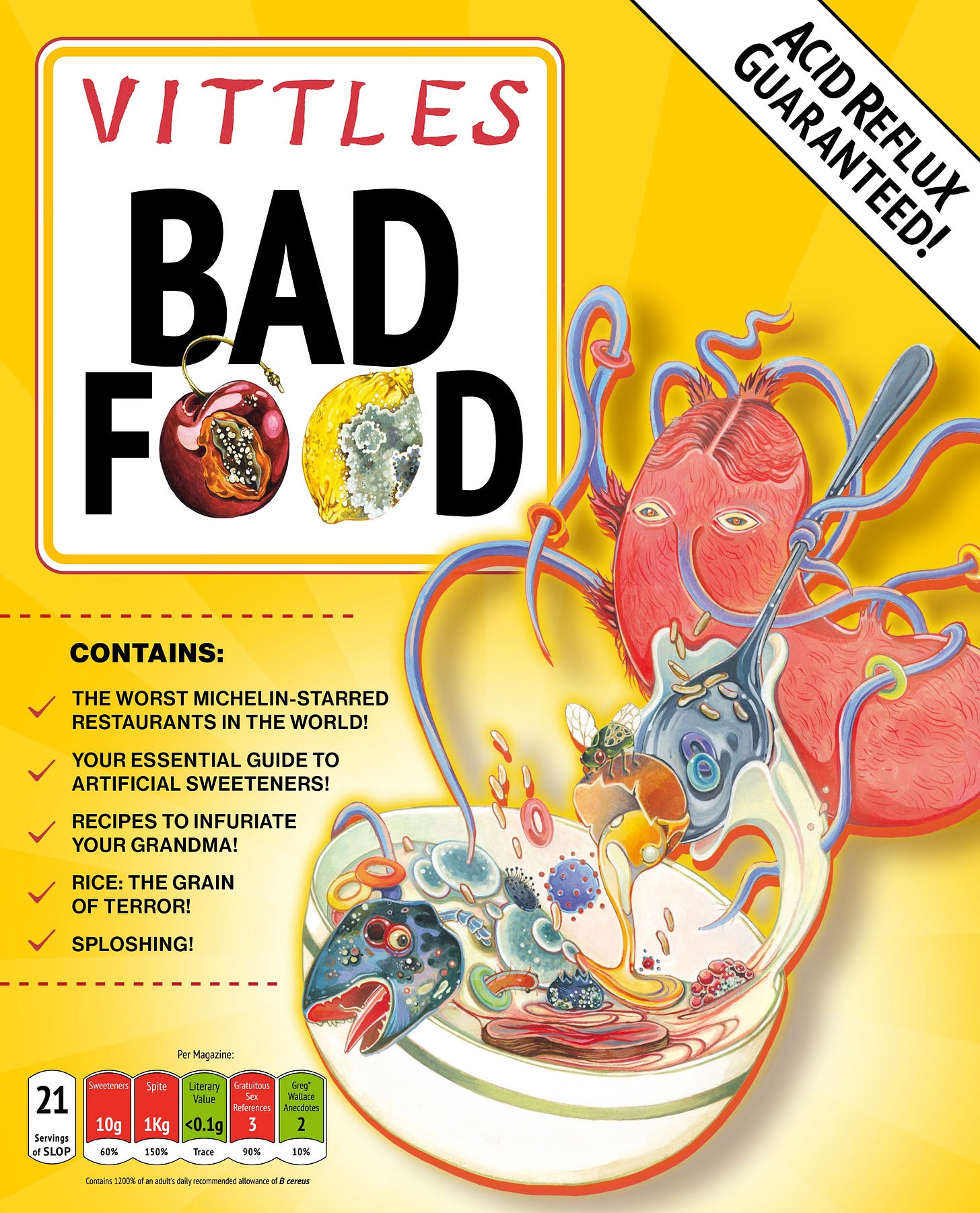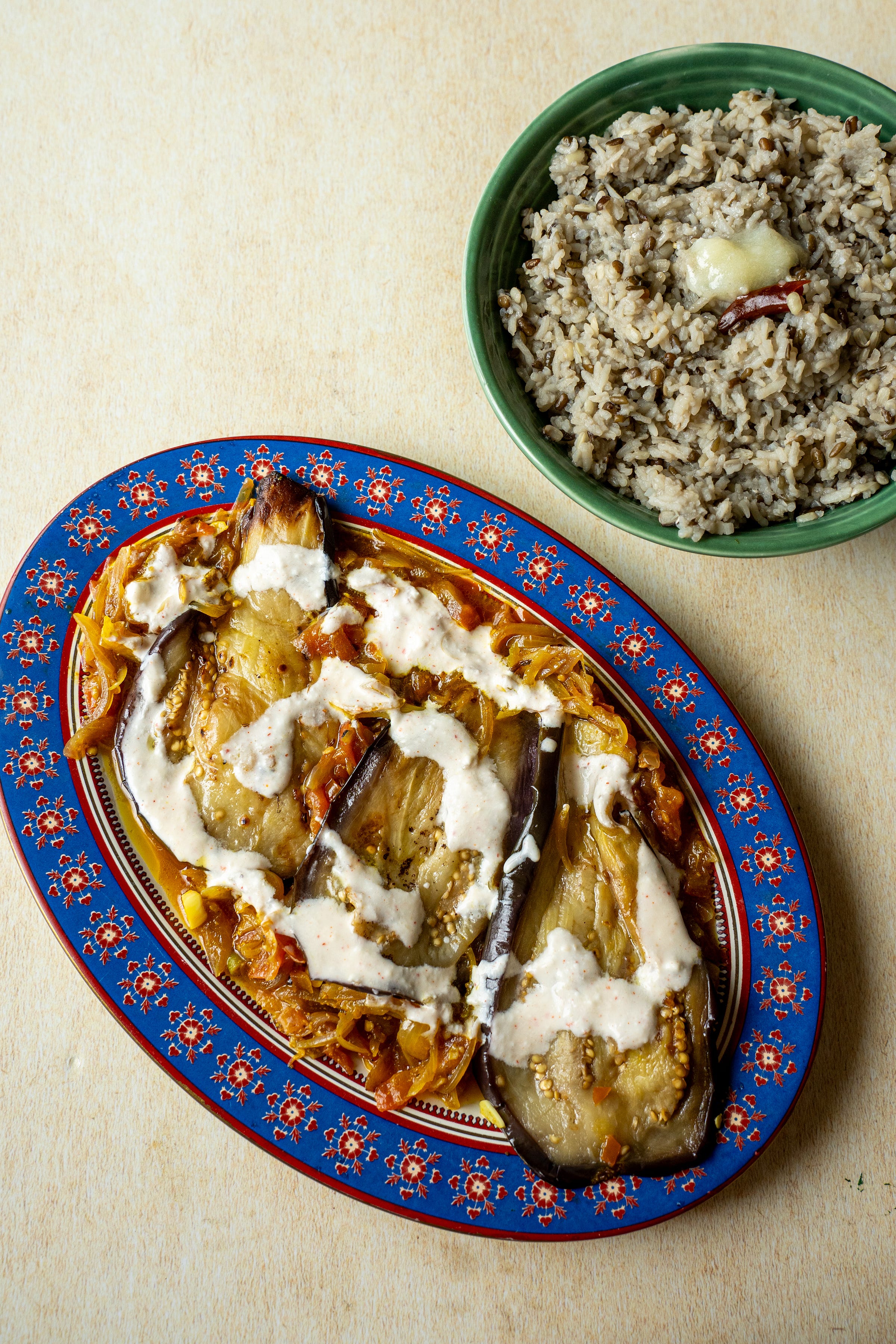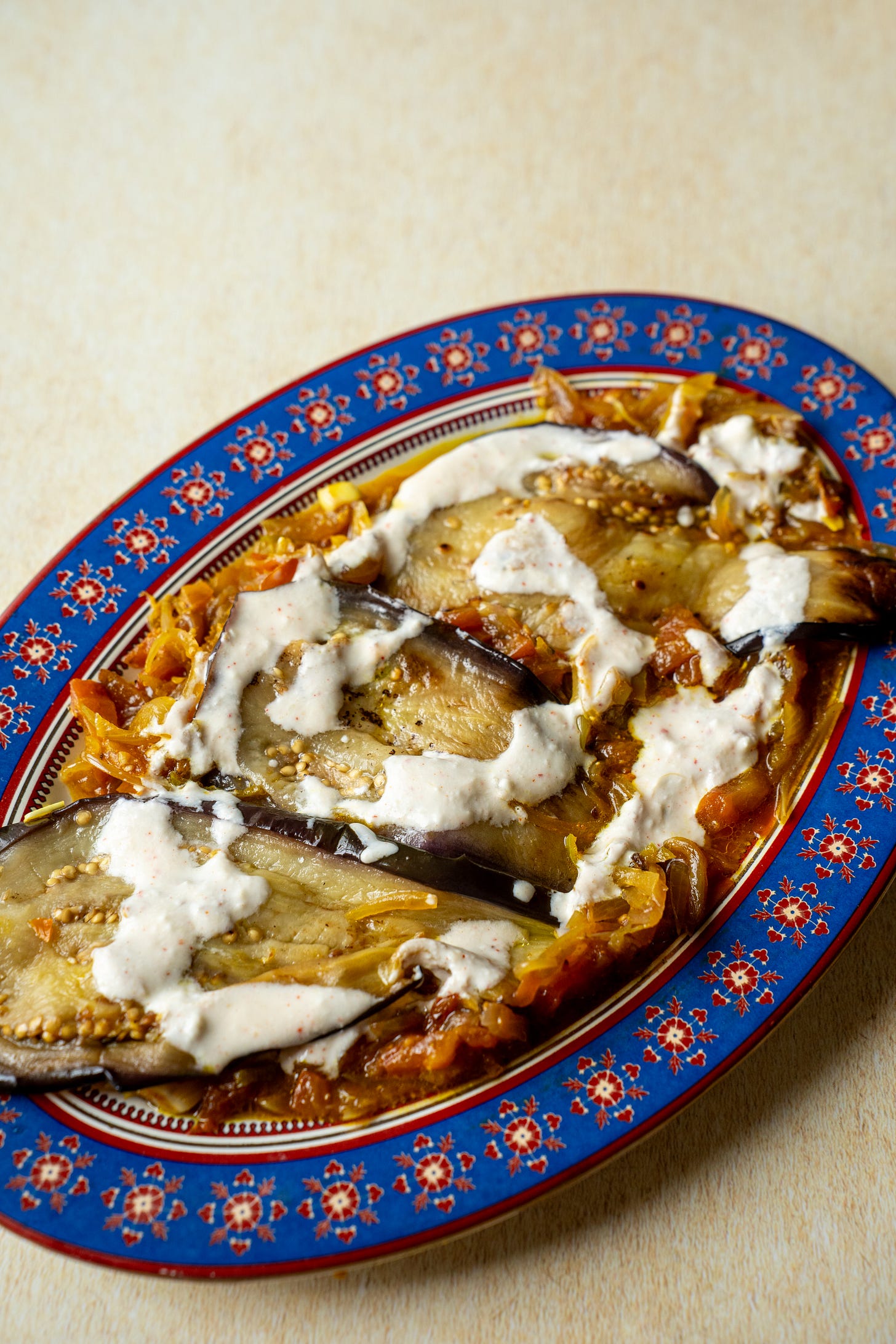Culinary Echoes
Recipes for borani banjan, an aubergine dish that connects Rampur and Kabul; and urad dal khichdi, a perfect accompaniment. Text by Tarana Husain Khan. Recipes by Iffat Gazimi and Tarana Husain Khan.
Good morning, and welcome to Vittles! Today, Tarana Khan writes about how food connects Rampur and Kabul, with two recipes that make for a quick, easy and comforting meal.
Yesterday we announced Issue 2 of our print issue, which is on the theme of Bad Food. The issue features more than 150 pages of all-new features, interviews, essays and fiction, all centred on the decidedly unglamorous, unaspirational and occasionally terrible aspects of food and food culture. You can read more about the contributors and content here. If you pre-order the magazine before 1 December, you will receive it for a discounted price, with an extra discount for paid subscribers. Pre-order now!
It was a balmy, sunny winter day and we – Iffat, Laila and I – decided to cook outside in the courtyard of my home in Rampur, North India. Iffat and Laila are mother and daughter, Afghan refugees living in Khirki, South Delhi. I met them by chance a few months ago, and we had ended up eating together, discussing the connections between Afghan and Rampuri cuisine. Our conversation led us particularly to borani banjan, a dish made from aubergines and yoghurt that is said to have been introduced to Rampur by Pathan migrants centuries ago.
Rampuri borani is a dish of fried aubergines served with a thick layer of yoghurt flavoured with garlic and cumin, whereas in the Afghan version, the aubergines are cooked with tomatoes and onions and then layered with yoghurt. Both iterations are lightly spiced and easy to prepare, and work well as accompaniments to flatbreads or rice dishes like pulao and khichdi.
As we cooked, Laila explained that ‘borani’ is a Dari word used to describe dishes that combine vegetables with yoghurt. The aubergine in Iffat’s borani banjan was soft and nourishing, with the tartness and freshness of the tomatoes and yoghurt balanced with the light sweetness of the onions. ‘The balance of colours is essential for the presentation of each dish,’ Iffat added, as she plated the dish, a pleasing mixture of purples, reds, greens and the creamy white of the yoghurt.
Food is one of the most tactile and immediate ways to evoke homelands. Dishes endure across timelines and borders; their names and recipes pass down seena-ba-seena – as intergenerational memories. ‘When I cook the dishes of Afghanistan, my heart feels comforted,’ Iffat told me, using the term ‘rahati dil’– a tranquil heart.
Iffat Gazimi’s Borani Banjan
I often prepare borani during Ramzaan (Ramadan). In addition to Iffat’s recipe for borani, I’ve provided a recipe for khichdi below (they are often eaten together in Rampur, but both can also be eaten on their own). These recipes are simple to prepare and ideal for the autumnal months.




